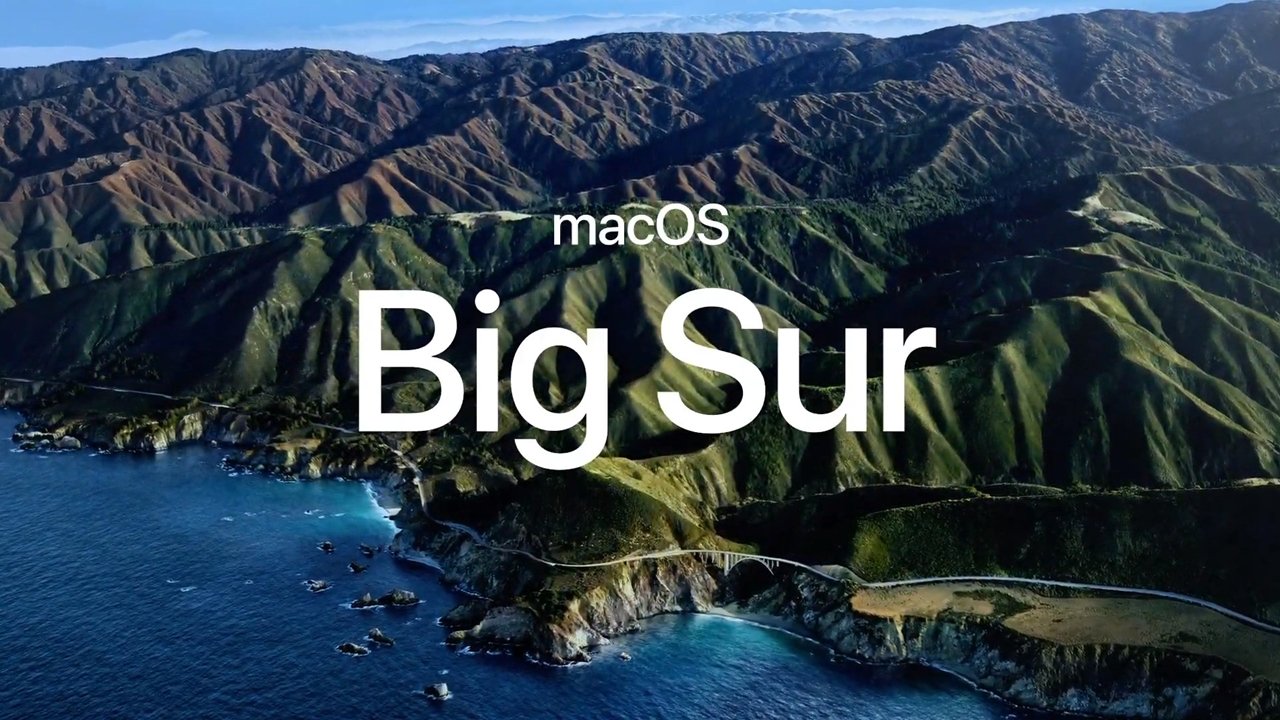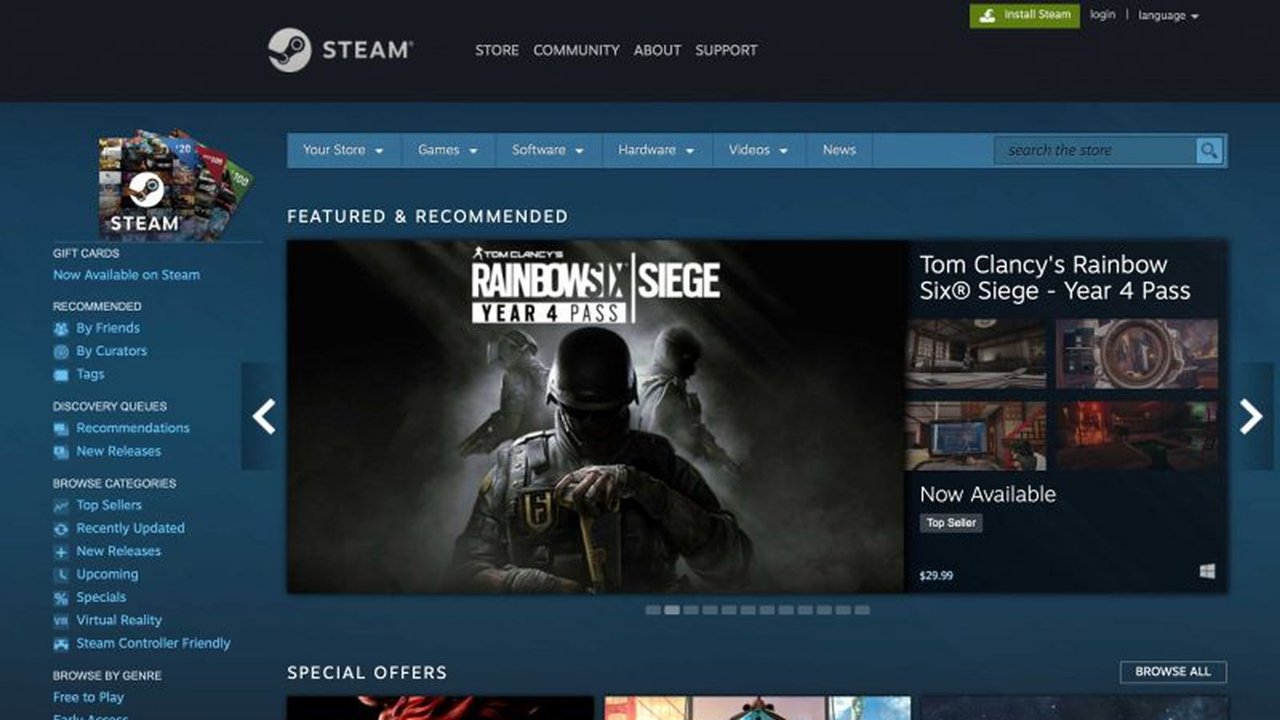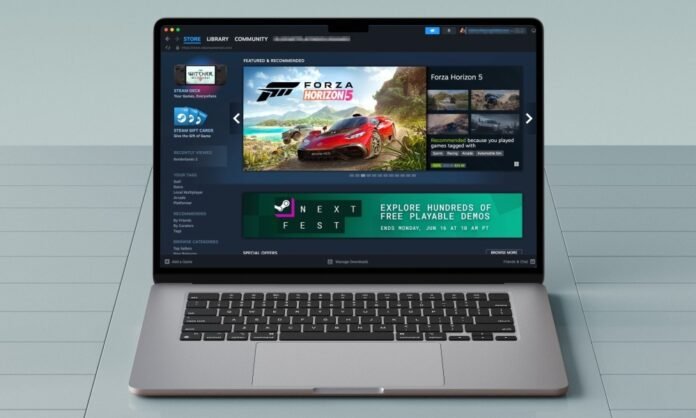
A Key Shift for Mac Gamers
In a recent announcement that could impact thousands of users still on older Apple hardware, Valve confirmed that it will officially discontinue Steam client support for macOS 11 Big Sur on October 15, 2025. While not entirely unexpected, the decision reflects a growing trend among major software platforms to phase out legacy systems, often abruptly, in the name of security and forward compatibility.
Although macOS currently accounts for a small share of Steam’s user base, the change may significantly affect those who continue using older Macs as their primary gaming machines—or who share these devices with younger users.
Why Is Steam Dropping Big Sur?
The core issue stems from Google Chrome, a critical component of Steam’s user interface. Steam relies heavily on embedded Chromium technologies, and since Google has already dropped support for macOS Big Sur, Valve is following suit.
In its official statement, Valve said:
“Starting October 15, 2025, the Steam client will no longer run on macOS 11. To continue using Steam and access your purchased games or products, you’ll need to upgrade your operating system to macOS 12 or later.”
This policy mirrors similar moves by other software companies over the past few years, where the end of browser and security updates becomes a trigger for broader support discontinuation.
The Decline of macOS 11 Big Sur
Launched in 2020, macOS Big Sur was a major milestone for Apple, ushering in the transition from Intel chips to Apple Silicon. However, by 2023, Apple had already ceased offering security and feature updates for macOS 11, effectively signaling its end-of-life.
While Valve’s move makes technical and strategic sense, it poses a challenge to users on aging hardware—especially those with Macs from 2013 to 2014, which often can’t upgrade beyond Big Sur through official channels.
That includes older MacBook Pro, MacBook Air, and iMac models equipped with legacy NVIDIA graphics cards—systems that Apple no longer supports with macOS 12 Monterey and beyond.

What Are Your Options?
If you’re still running macOS Big Sur and want to continue using Steam after October 15, you have three primary options:
Buy a New Mac
Upgrade to modern Apple hardware that supports newer macOS versions and is better optimized for gaming and software updates.
Use an Unofficial macOS Upgrade Tool
Tools like OpenCore and Patch Sur can help older Macs bypass Apple’s restrictions and install macOS Monterey or later, though at the user’s own risk.
Stick with Big Sur and Lose Steam Access
You can continue using your current OS—but you’ll no longer be able to launch the Steam client or access your game library starting mid-October.
Who Will Be Most Affected?
According to the latest Steam hardware survey, macOS users make up only about 1.88% of the platform’s total user base. Of those, a majority are already using macOS 12 Monterey or even macOS 15 Sonoma, meaning the practical impact may appear minimal.
Still, the move hits a specific segment of users: those who rely on older Macs, whether as secondary gaming machines or shared devices for children. For this group, Valve’s announcement could be a push toward costly hardware upgrades—or a permanent goodbye to Steam.
Gaming on macOS: A Mixed Bag
Gaming on Macs has never been as mainstream as on Windows. Most major game developers still focus primarily on Windows platforms, and even Valve’s own Steam Deck and its Linux-based Proton compatibility layer haven’t extended serious support to macOS.
Thus, Steam’s withdrawal from Big Sur is another step in the slow retreat of game support on older Apple devices. If you’re using an outdated Mac and hoping for a revival of game compatibility, the horizon looks grim—unless you’re willing to invest in a newer device.
A Trend of Shrinking Support
The decision to phase out macOS 11 underscores a broader industry trend: software platforms increasingly favor forward-looking support over long-term compatibility. This strategy often leads to faster innovation, better security, and newer features—but also shortens the lifespan of older machines, especially those that can’t officially upgrade.
Apple itself is no stranger to this practice. In fact, it’s common for Macs to lose major OS support after just six to eight years, even if the hardware is still functional. By extension, companies like Valve are left with little choice but to follow the same roadmap.
Why macOS 11 Still Matters
For users on the fence, it’s important to remember that macOS 11 was the last supported OS for a wide range of machines, including many popular models from 2013 and 2014. This cutoff is not just about a software update—it’s a forced decision point for thousands of users who now face a technical and financial dilemma.
That includes students, casual gamers, and those using MacBooks for everyday tasks who dabble in gaming through Steam. Losing access to Steam on those machines effectively renders them gaming-incompatible, unless extreme workarounds are used.
What You Should Do
If you’re still running macOS Big Sur, here are some steps to take now—before the cutoff date arrives:
- Check your current macOS version by clicking the Apple menu > “About This Mac.”
- Determine if your Mac can officially upgrade to macOS Monterey or later. Use Apple’s compatibility charts to verify.
- Back up your data thoroughly using Time Machine or another backup method before attempting any upgrade.
- Evaluate hardware replacement options, especially if you rely heavily on Steam.
- Explore cloud gaming or alternative platforms if buying new hardware isn’t feasible.
The Bottom Line
Steam’s decision to drop macOS 11 support is logical from a technical standpoint—but it’s still a tough pill to swallow for those on older Macs. As always, technology marches forward, but not without casualties.
If you want to continue enjoying your Steam library on a Mac, you’ll need to act before October 15, 2025. Whether that means upgrading your OS, tinkering with patch tools, or buying a new machine, the message is clear:
macOS Big Sur is no longer welcome in the Steam ecosystem.
And for Apple users still gaming on older devices, this may be the final call to move on—or miss out.

